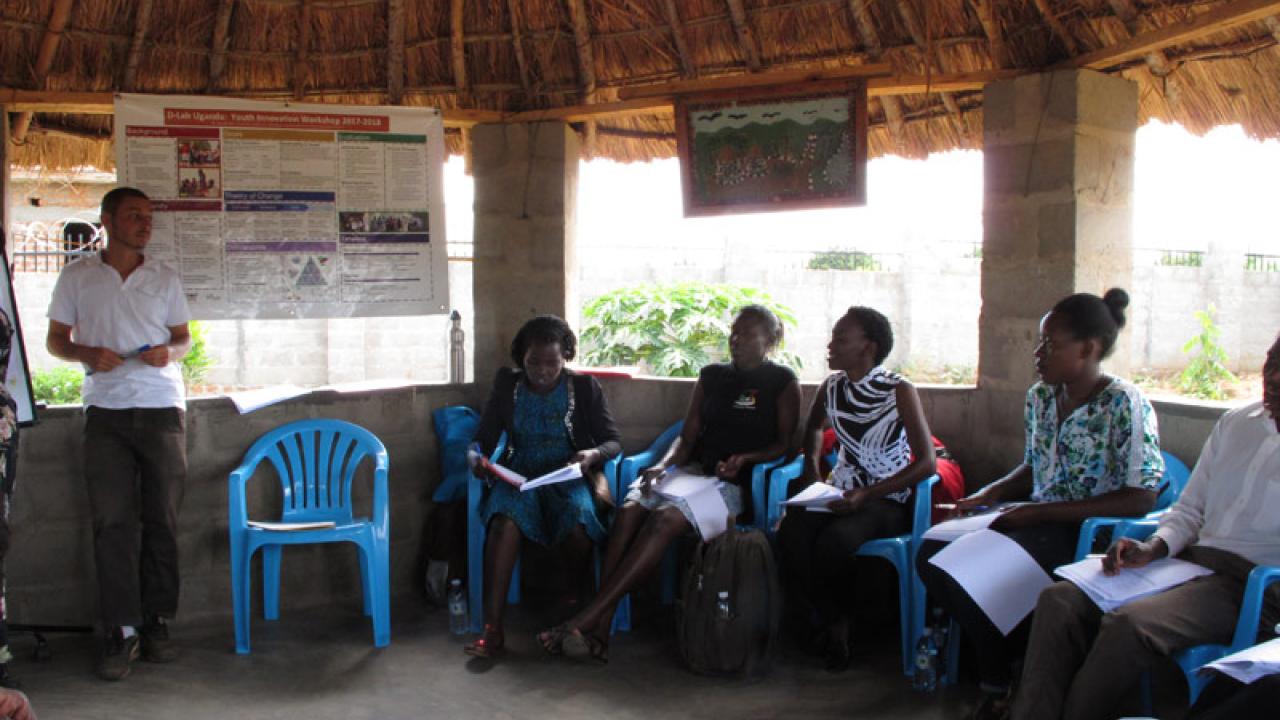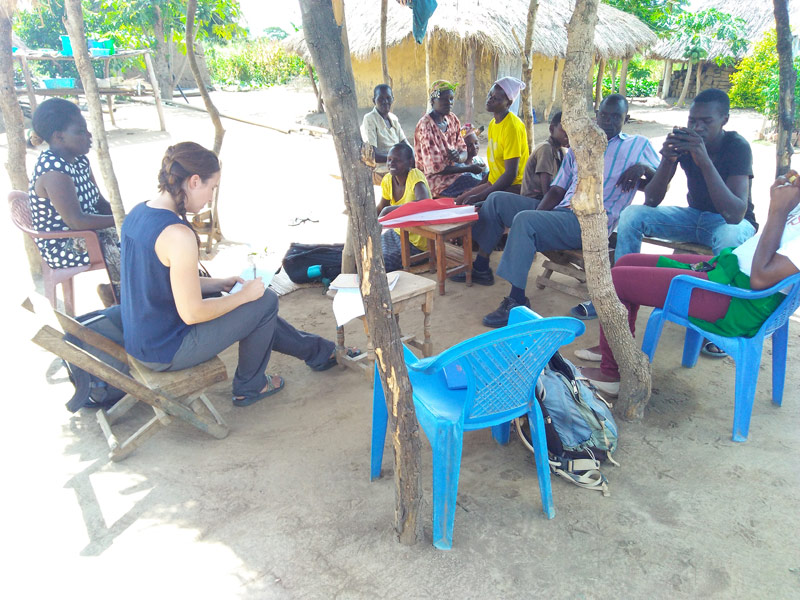
Eastern Uganda Summer 2018 with Mariah Coley
Jastro Report
In July 2018 I traveled to Eastern Uganda for my second visit to the region since joining the IAD program. During my first trip in 2017 I conducted research with the Innovations in Dry Season Horticulture Project (HIP), a participatory research and development project that designs and pilots small-scale irrigation technologies to address the unique needs of women farmers. Following this first visit to the region, I used the data and perspectives I had collected to adapt an existing farm-system computer model, the Agricultural Policy/Environmental Extender (APEX), for use in small vegetable production systems. I also developed a participatory protocol for applying and validating the model in partnership with Eastern Ugandan farmers. These two outcomes became my capstone project for completion of the IAD master's degree in 2018.
During the second trip, for which I received travel support from the Jastro Research Fellowship, I collected additional data for use in implementing APEX and other models, and trained and collaborated with undergraduate students from Busitema University in Tororo, Uganda in interviewing farmers about their farm management practices and their experiences with irrigation.
While collecting data and speaking with farmers is always a fascinating activity, I feel the more important outcome of this work was in supporting the Ugandan undergraduates to build their skills in working with both qualitative and quantitative data. I worked with the organization TEWDI Uganda, which is the local implementing partner of HIP, to carry out a daylong workshop in which we practiced interviewing methods, field note-taking techniques, and discussed common challenges, and reviewed the interview protocols used by the project.
In the weeks following this workshop, the students paired up with me or one of the other members of the HIP experienced with data collection. We traveled to the project sites and interviewed farmers together, which allowed the students to both observe and practice their new skills.
Students later reflected that this training, and their involvement with HIP more broadly, provided valuable academic and professional experience that they would not otherwise have accessed in the course of their studies. Most of the students that intern with the project are working toward their diplomas in water resources engineering, irrigation engineering, or agricultural mechanization, and being able to work directly with rural farmers--who they hope to serve in the future as extension or agricultural advisory professionals--during their studies gives them a greater perspective on the challenges and opportunities for agricultural development in this region.
The experience of teaching and learning with these students also helped me see that research and development that are truly participatory can cast a much wider net than--and have impact far beyond--just the research team and the study participants. The students I worked with had come to their internships with a strong desire to contribute to the development of their communities--local, regional, and national--and showed me that, because of this desire paired with their native linguistic and cultural fluency, they are probably even better positioned to do this than many international agricultural development professionals.
You can find out more about these students, and about the HIP project, at the project website (which I also developed while I was in Uganda last summer!): www.hortirrigation.org.
